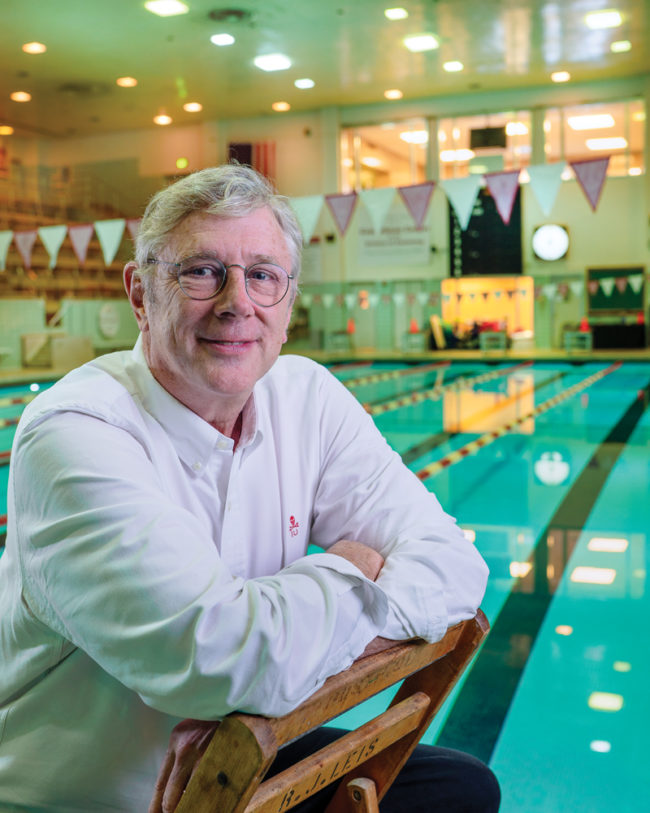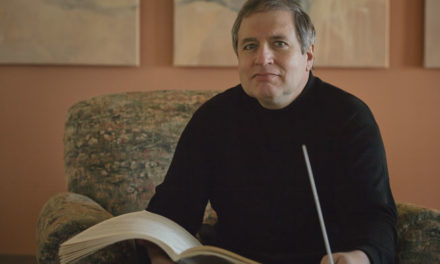
BY PETER DORFMAN
Joel Stager has made a career of studying high-performance athletes, so one might assume the goal has been to help them win. But Stager, 66, professor emeritus in the Indiana University Department of Kinesiology, insists winning never was the focus of his life’s work.
“I study how things work optimally,” he explains. “How does someone run a four-minute mile? How do you swim 100 meters in 50 seconds? If we don’t know how things work when everything is going right, how can we learn how to fix things when they go wrong?”
Stager directs the Counsilman Center for the Science of Swimming, a research institute within IU’s School of Public Health, named for Stager’s mentor, legendary IU swimming coach James “Doc” Counsilman (1920–2004).
Stager was a senior at the University of Miami, a varsity swimmer and aspiring coach when he met Counsilman in Miami. “I had planned to go to grad school at the University of Alaska to study diving mammals, like seals. But Counsilman said, ‘Heck, I’ve got 65 diving mammals—come to Indiana and work with the team.’ Story of my life—I get talked into things.”
What put Stager and his team on the map was a study focused on swimsuit industry claims that bodysuits introduced for the 2000 Olympic trials could significantly enhance performance. Swimming coaches were intensely interested in these claims—not least because the bodysuits cost between $700 and $900. “Instead of $2,000, an athletic department had to have a budget of $20,000 to $40,000 for suits,” Stager says.
Stager realized these suits hadn’t existed prior to the 2000 Olympics, so a comparison of the results from the 1996 trials and Olympics with those from 2000 could make or break the industry claims. “We ran the statistics on their times, and it showed that the new suits made no difference at all,” Stager asserts.
The story got major media attention and spurred the IU administration to fund an institute to honor Counsilman’s legacy and promote research on human performance, headed by Stager.
The importance of the research coming out of the Counsilman Center extends far beyond aquatics. Its investigations have demonstrated the benefit of chocolate milk on recovery after exercise and various other topics for which the data involved swimmers—but the implications could be extrapolated to other sports.
In January, Stager nominally retired from IU, but he’s still very much at work. Under the university’s 18/20 retirement package, he gets a full salary for five additional years. “I always enjoyed coaching,” he says. “I coached swimming at Bloomington High School South and we did very well. But now I’m coaching grad students. It’s hard for me to let go of that.”











